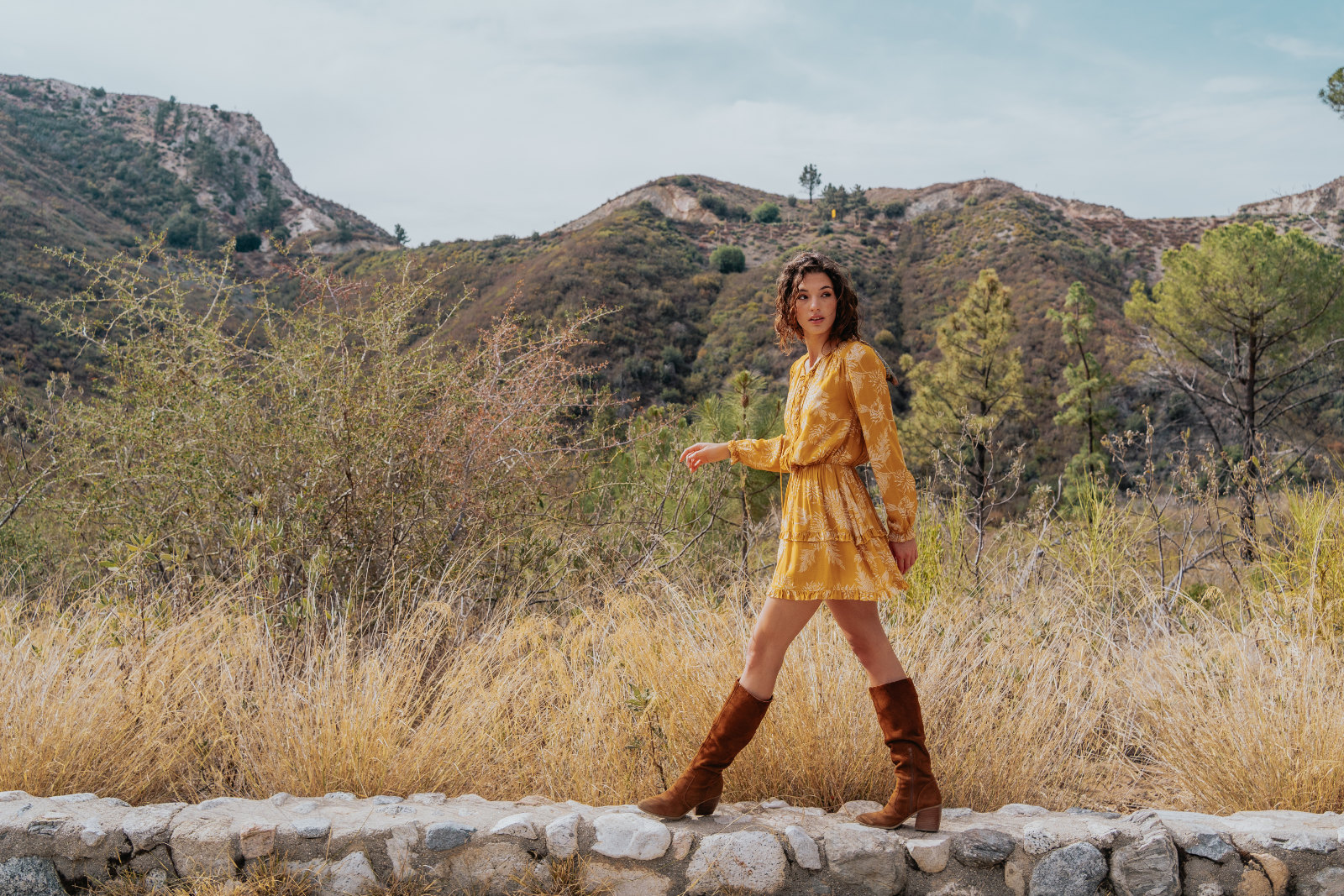
FASHION Lauren DeCarli of Paneros Clothing has ensured that her brand stands up to scrutiny when it comes to its claims of sustainability. Jack Yan looks at the Los Angeles-based eco-fashion label
First published in Lucire issue 44 and the November 2021 issue of Lucire KSA
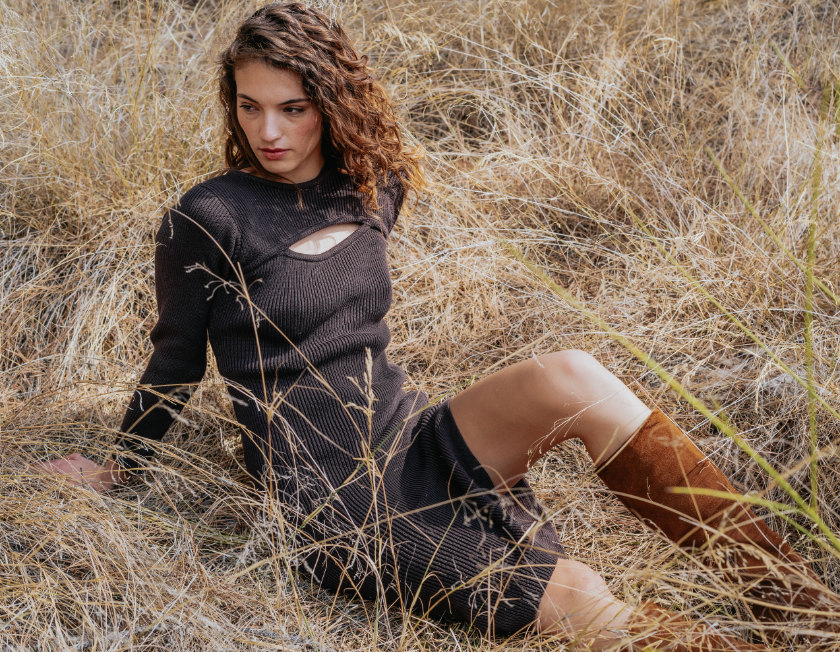
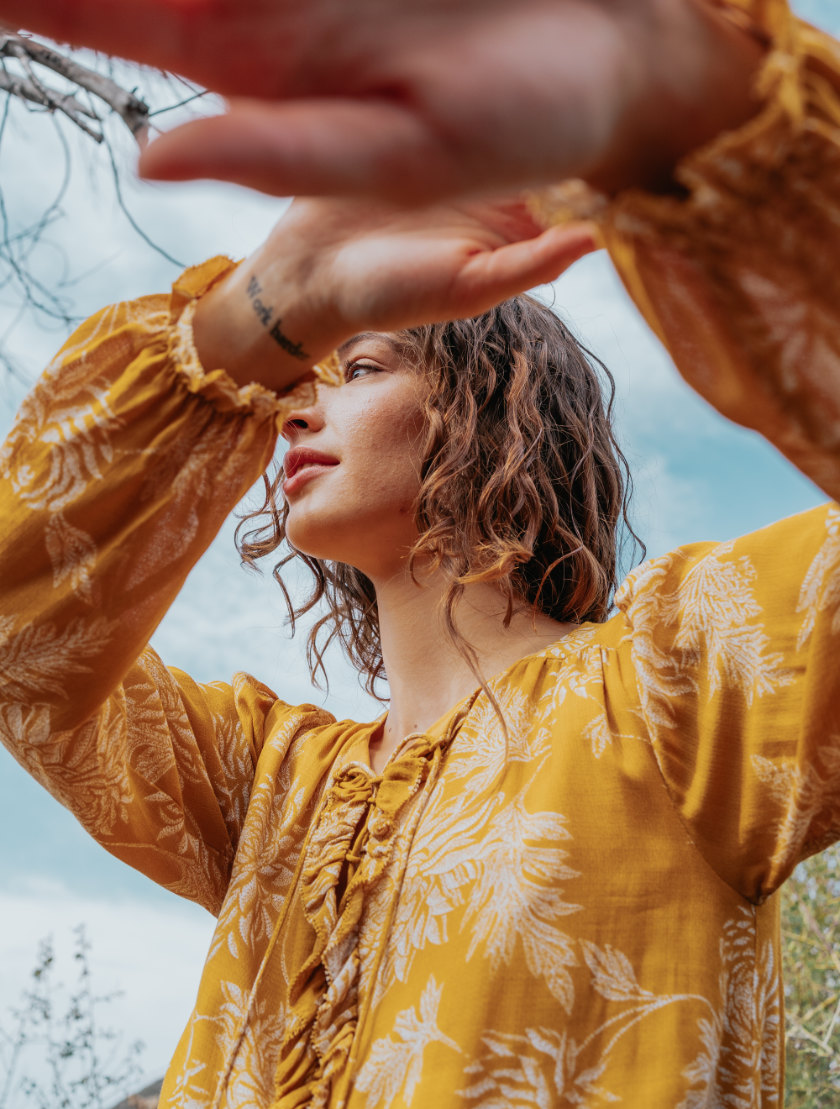
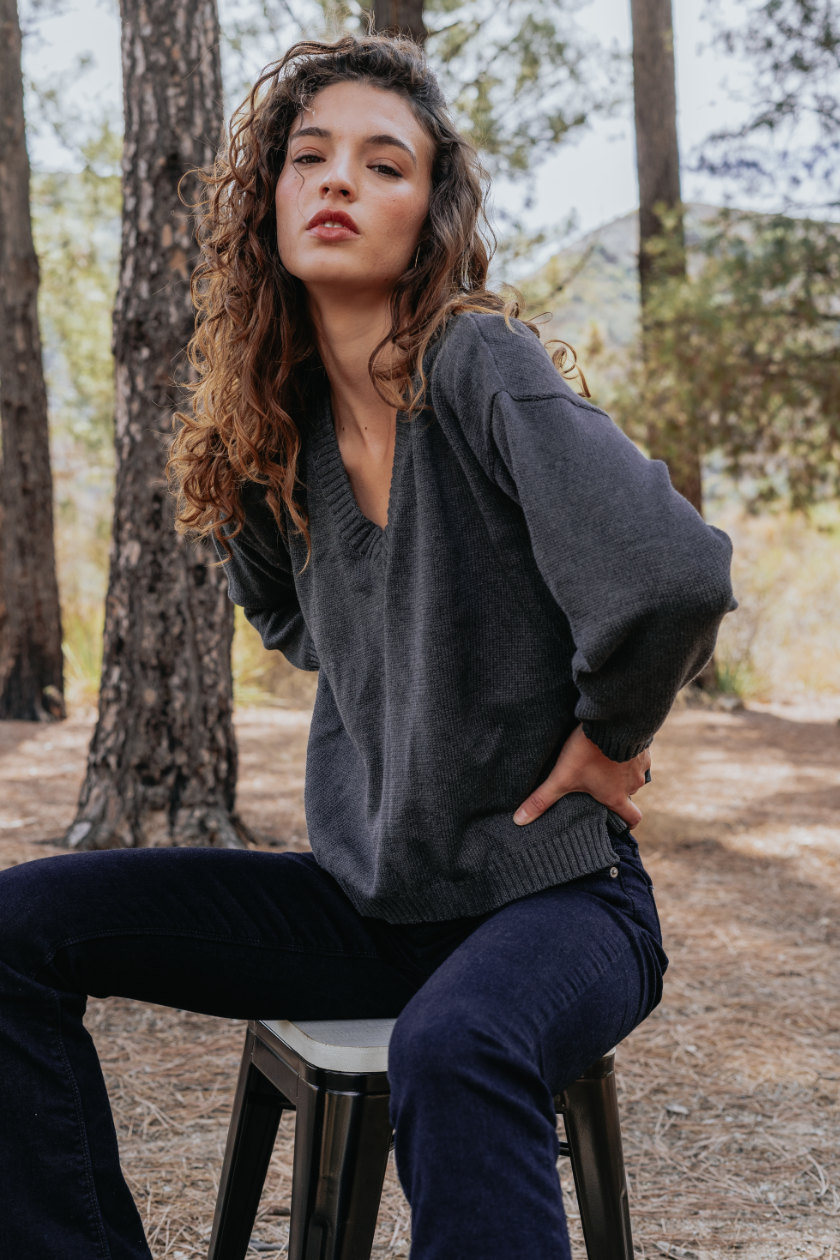
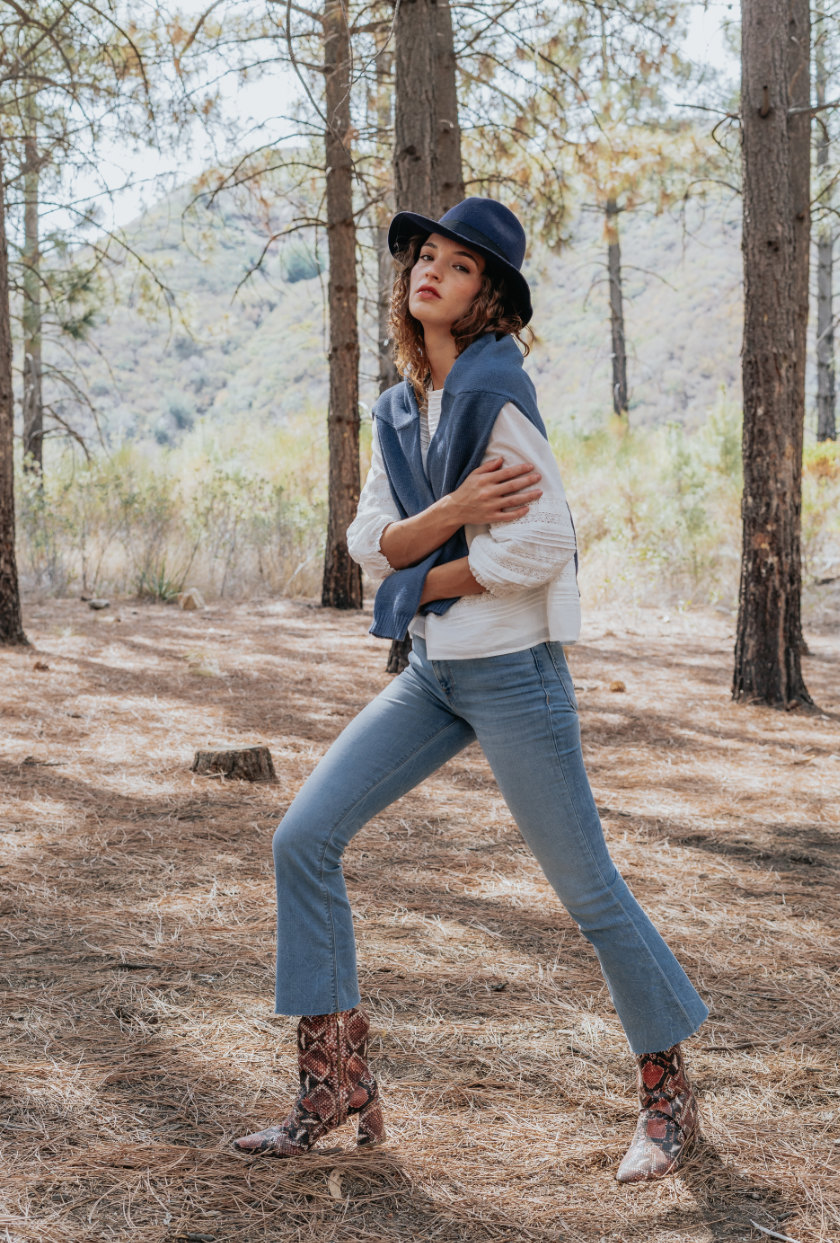
Paneros is one of the new breed of fashion labels: socially responsible, eco-friendly, made in small batches (ensuring a level of exclusivity), eschewing seasons, and producing colourful, wearable, timeless and well crafted staples for the woman who wants effortless style while helping the planet. In many ways, the design approach reflects the personality and background of its founder, Lauren DeCarli, who recalls her childhood on East Northport, Long Island as having had a positive effect on how she approached fashion.
‘I think being close to Manhattan definitely impacted my outlook on style,’ she tells Lucire. ‘I would go into the city very often to take advantage of all of the amazing experiences it offers, and being exposed to different styles and cultures growing up definitely had an influence on me. I was never limited to having to wear or dress a specific way—I was always given freedom to express myself through fashion. I loved going to our local consignment store to score amazing pieces that you wouldn’t find anywhere else.’
Her family’s creativity helped, with her mother loving crafts and her father having an architectural background. Her brother had also pursued a career in the arts and was someone who had a social conscience from a young age, thrifting and mending his clothes, and joining causes that he believed in. ‘I give a lot of credit to my family for my sense of giving back,’ says DeCarli. ‘My older brother really led by example by getting involved in a lot of causes growing up, and he got me involved in Students for 60,000.’
Students for 60,000 was a group at their high school that tackled humanitarian issues, and DeCarli found herself travelling to Nicaragua to help build homes and schools, and provide aid. But it is also something in her character that drives her to help others: ‘I think it is just how I was raised and I genuinely care about making the world a better place. I’ve always had a compassionate heart for everyone.’
DeCarli trained at the Fashion Institute of Design & Merchandising in Los Angeles, initially earning an Associate of Art in fashion design, before completing a bs in business management in 2012. By that time she had worked in fashion for a few years, doing sales for one label before heading to a Burbank, Calif.-based company where she rose up the ranks from being an intern to head designer.
She worked at the wholesale fashion company for nearly 10 years, but began to feel burned out and feeling as though she needed to make a change for herself. But she feels she learned some good lessons while there, including, ‘Not to be afraid to speak up and to trust your gut. My boss always said, “If they don’t like it yet, it’s because it’s new to them and they don’t understand it yet.” I learned not to take no for an answer, and that there is usually a way to get something done. Problem-solving was a big aspect of my job and it taught me how to be flexible and how to think outside the box. I also learned that you don’t have to be mean to get things done or be in competition with your co-workers, that you can be kind and friendly and work collaboratively.’
Having witnessed how ‘wasteful, polluting and unsustainable’ the fashion industry could be, DeCarli set her sights on creating something better. ‘I truly wanted to make a difference as someone who really values our earth and the people on it. I set out to create a better alternative—producing beautiful slow fashion clothing made the way it should be and designed to be worn not just for one season, but year after year, so that consumers can look great while making a positive impact on the planet.’
In 2019, Paneros Clothing was born, on the principle of slow fashion, a refreshing and much-needed change from the heady cycles that the industry found itself in this century. DeCarli started the label with her fiancé (at the time of writing; by the time readers get this issue they will be married), Eric Till. The two have managed to continue working through the pandemic at home, having separate working spaces and setting time to pursue their own activities.
The name, Paneros, comes from Greek. She explains, ‘It was really important to me to have the brand name mean something special and I wanted to create a brand that was focused on not only the environment, but the people as well. I combined the ancient Greek words pan meaning all and eros meaning the love to create our brand name.’
Among the first items released under the brand were 100 per cent upcycled Hawai‘ian shirts and bucket hats made at Paneros’s base in Los Angeles. ‘I started the brand by wanting to be more sustainable and ethical, but without sacrificing the fashion component—which is why I started with creating beautiful pieces from what others had discarded. But my ultimate dream was to have a full contemporary collection of clothing.’ From there, DeCarli spent a year sourcing and developing a women’s collection that could be made sustainably and ethically.
She pledged to make Paneros more circular, where the company considers not only the inputs into each item it produces, but the value from the item’s use, and what happens to it at the end of its life, such as whether it can be repurposed or recycled. A circular model also means capturing off-cuts and packaging, and returning unavoidable waste back to nature safely. It’s in contrast to previous “linear” systems where the planet is harmed along the way.
DeCarli came up with a five-part circularity model, with very clear steps: selecting smarter materials and fibres, responsible manufacturing, choosing quality over quantity, minimizing waste, and minimizing pollution. There is no greenwashing: Paneros is set up to withstand scrutiny from eco-conscious customers. As DeCarli puts it, ‘If they can’t or won’t answer your questions openly and honestly, you might wonder about their claims.’
There is no such issue with Paneros. ‘The five-part model is ingrained in everything we do,’ she explains. ’I know that there’s not one true definition of sustainability in the fashion industry and I wanted to be completely transparent with our community about what it means to us as a brand and that we back up what we are saying. I also believe that you can’t separate sustainability from ethical working practices for the people involved—which is why we include responsible manufacturing in our five-part model … We’ll see if the list grows in the future!’
Those first steps, having the right inputs and manufacturing responsibly, can take considerable time to set up. DeCarli chose to use smarter fibres, with no synthetic materials, along with dead-stock fabrics. ‘I work with really amazing fabric suppliers that I have personally visited, and while I can’t always be there physically to source them, the team that we work with does a great job at being my eyes on the ground. I give specific instructions on what fibres I won’t use, such as polyester, nylon, or acrylic, so I don’t have to worry about a fabric coming in that I wouldn’t approve of.’ DeCarli has pledged never to use synthetic fibres to reduce the use of plastic.
She is also careful about the offshore manufacturing she uses, to make sure that the responsible efforts taken in sourcing fabric aren’t being let down at the next stage. Currently Paneros contracts, among others, an ethical producer in Indonesia that pays its workers a fair wage. Selecting who’d share partner with took an incredible amount of time. ‘I did a lot of research and due diligence before selecting each of my vendors and partners. In fact, it took me eight months to develop and source a full supply chain that met the standards that I needed without sacrificing quality.
‘As part of that, I personally visited every vendor I work with, and meeting the artisans was truly inspirational—to see traditional hand-crafting techniques being passed down among multiple generations really helped me feel the connection with the artisans who make our clothes that we wear every single day. I really love learning about all of their stories and hearing about their passion for their skills and craftsmanship. You can tell they are so proud of the work that they do!’
Those artisans are permitted to complete their work at home or in a small workshop, allowing them to take care of their families if needed. DeCarli saw an opportunity to keep the skills and the tradition alive.
Without a fast-fashion schedule, they do not have to manufacture massive quantities and see items unsold. That alone reduces waste.
She has built in steps to keep the standards high—part of her choosing quality over quantity. ‘We go through a lot of steps before the final production to ensure that the quality is exactly up to our standards and I personally QC every piece that comes in before it is shipped out. We also have a great qc team at each vendor that we work with and I would rather ship something out late than have it be anything less than the quality our customers deserve.’
And at the end of the garments’ lives, DeCarli wants to minimize what is sent to landfill or incinerated because they don’t biodegrade, hence staying away from synthetic fibres, thereby reducing microplastic pollution.
‘We truly have all the love for our planet and the people on it. I think it’s so important to include everyone involved in the process from the artisans all the way to our customers. They’re what make our brand so special, and every one of them deserves to have their story told and be seen. We highlight our manufacturing partners we work with on our blog and social media and we also started a blog series called “Small Talk” where we feature our customers and their story.’
continued
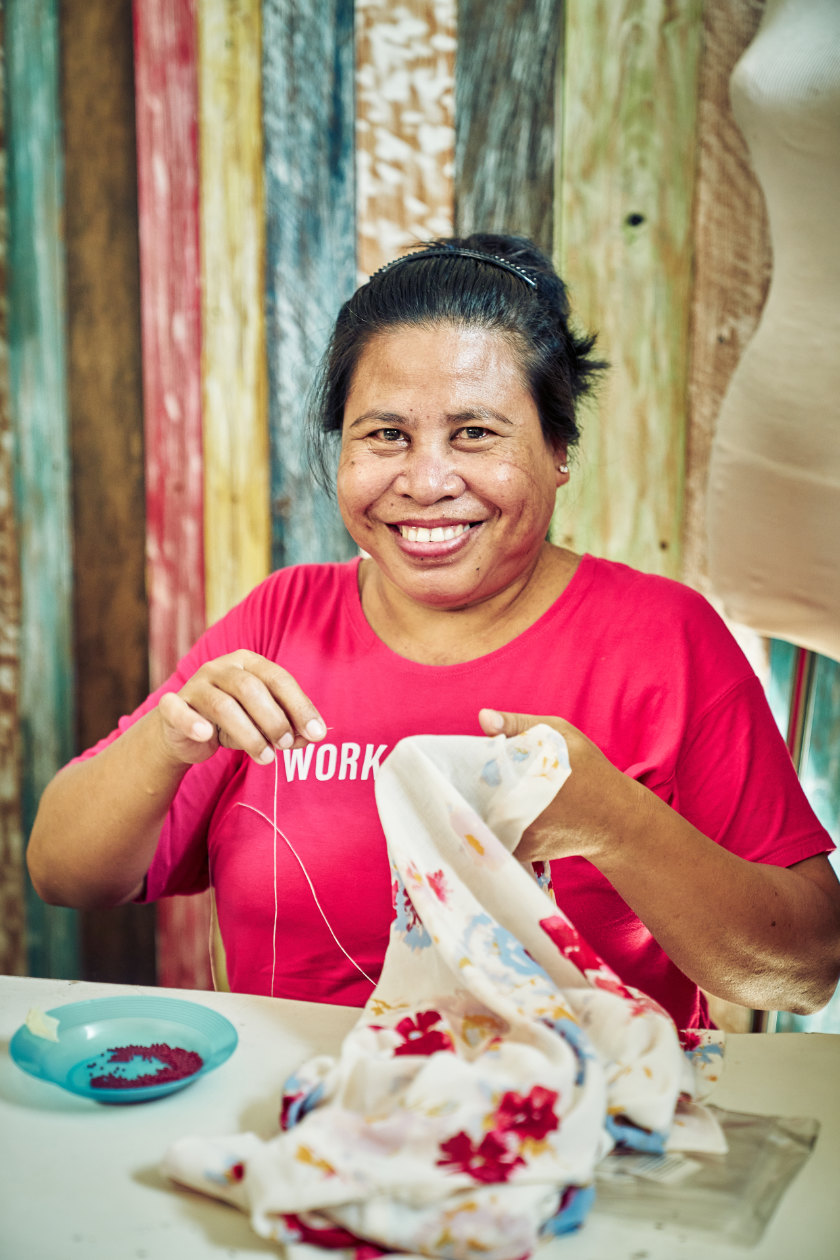
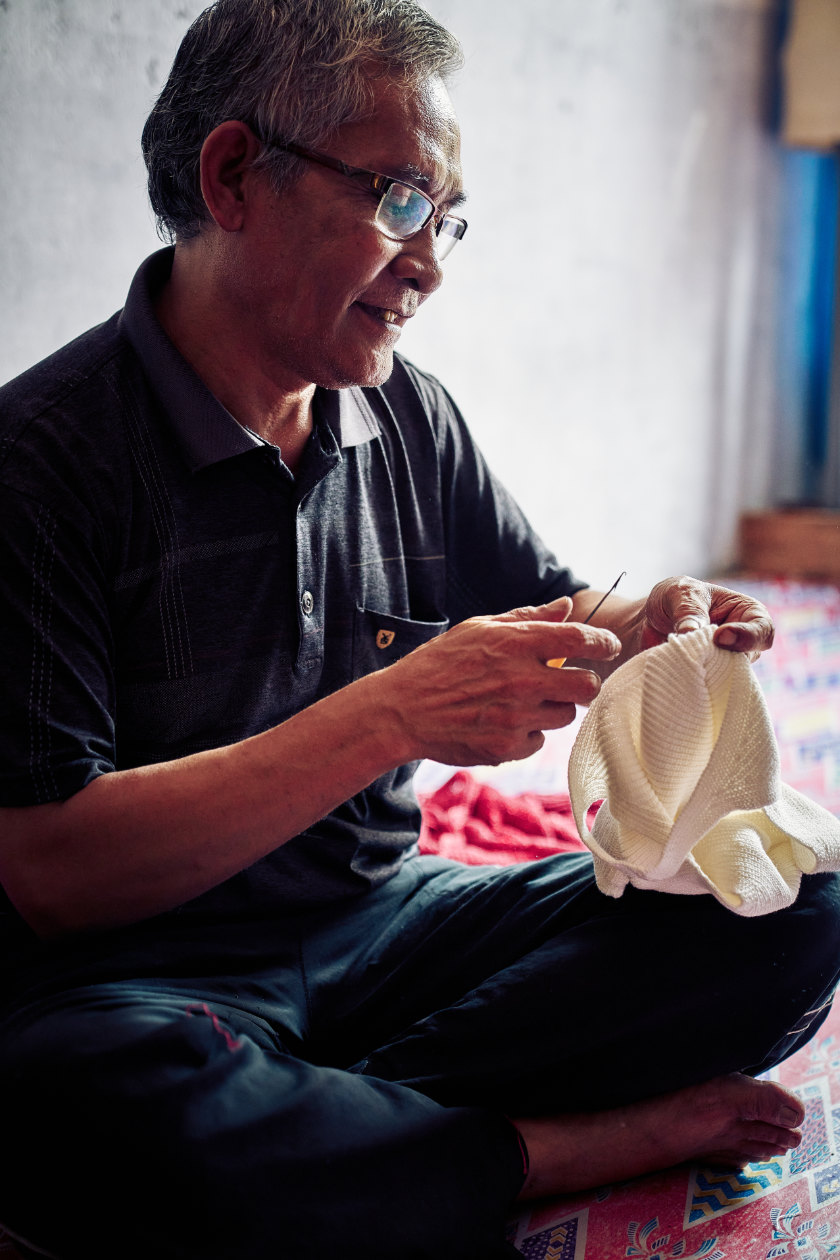
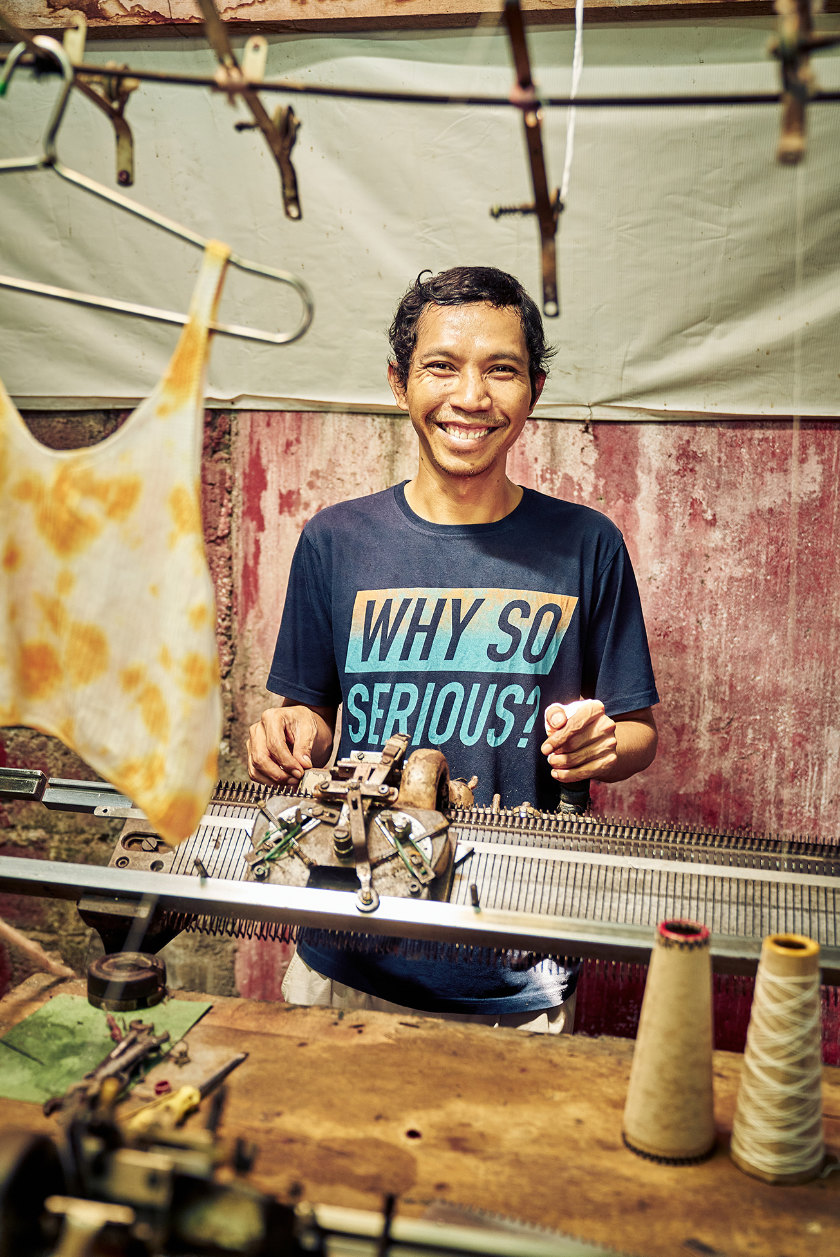
Above: Paneros not only celebrates its fashion, but the people in Indonesia who make it, in its ‘Small Talk’ blog series.
Upcycled garments remain part of what Paneros produces. ‘By using eco-friendly deadstock fabrics, I can still create beautiful styles from what others have discarded, and that’s what I love. Sometimes we find 16 yards of fabric and we make three dresses out of it and there’s something really amazing and beautiful about it. Those three customers have a style that they’ll cherish forever and will feel so special to them,’ she says.
Post-COVID, DeCarli plans to have pop-up events across the us to meet their customers in person. ‘I would love to get back to Bali and to share more behind the scenes with our community as well.’
DeCarli is optimistic about consumers becoming more aware of sustainability, but recognizes habits are hard to shift. ‘These days, we live in a world where everyone wants everything right away, a new item every week, and they can’t have more than one picture in it … it’s not sustainable. I hear from many friends and consumers that they buy fast fashion because it’s inexpensive, but it never fits right, the fabric isn’t nice and they only wear it once and then get rid of it.
‘I think if people really thought about what they were buying, whether they would be able to get multiple uses out of it, if they could style it with different things, is it going to last a long time … They would start to realize they might not need it or that they would rather save up to buy something that they can wear now and 30 years from now.’
This is something she advises customers who visit her. ‘When someone tries on one of our pieces and they’re unsure if they’re really going to wear it, I don’t push them to buy it, I tell them, “I don’t want you to get this if you don’t really love it and you don’t see yourself wearing it.” I say this because we don’t need more clothes winding up in the trash and I truly want our customers to love what they buy from us.
‘My advice would be to not to try to do everything at once—each incremental step helps and no one is perfect. Just start making some changes and do your own research on the brands you are giving your money to and supporting. Start thinking about how you can be a more conscious consumer overall. If you’re stuck, our five-part guide is a great place to start!’ •
Jack Yan is founder and publisher of Lucire.
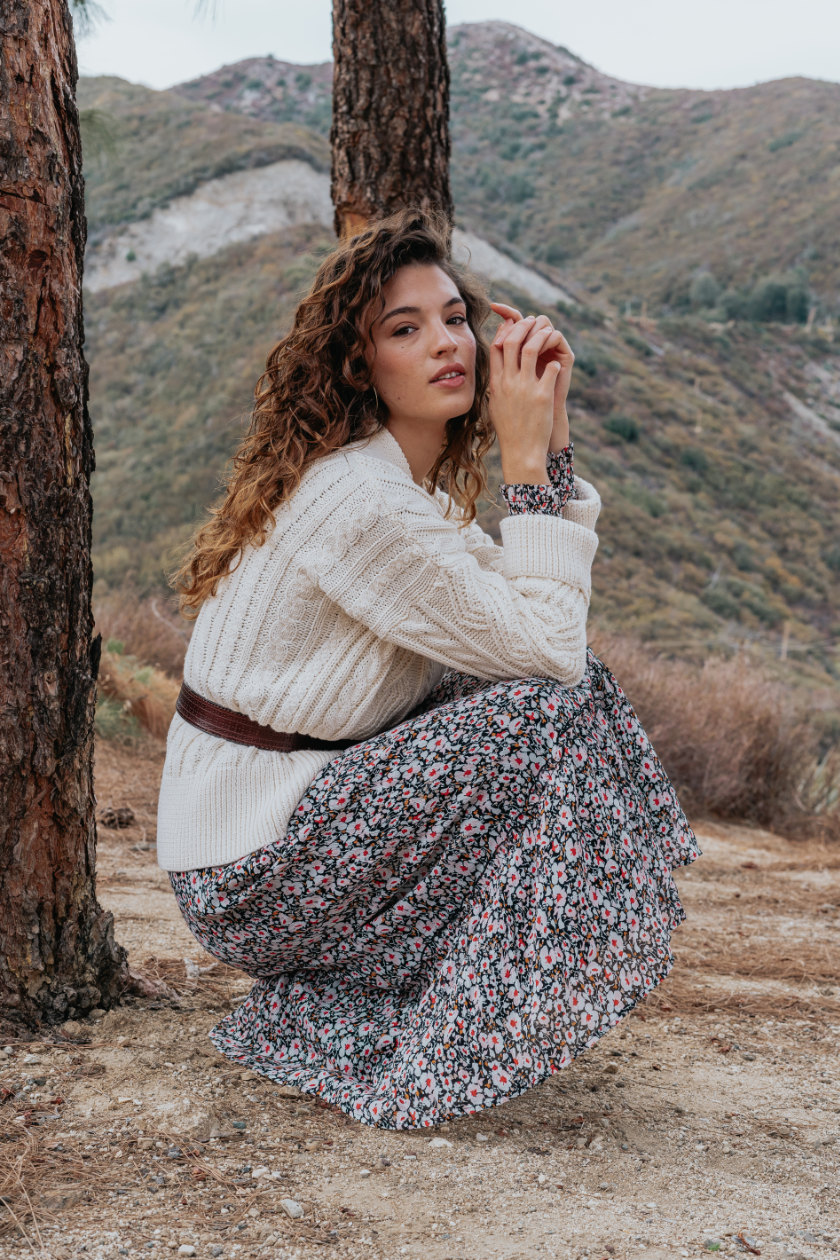
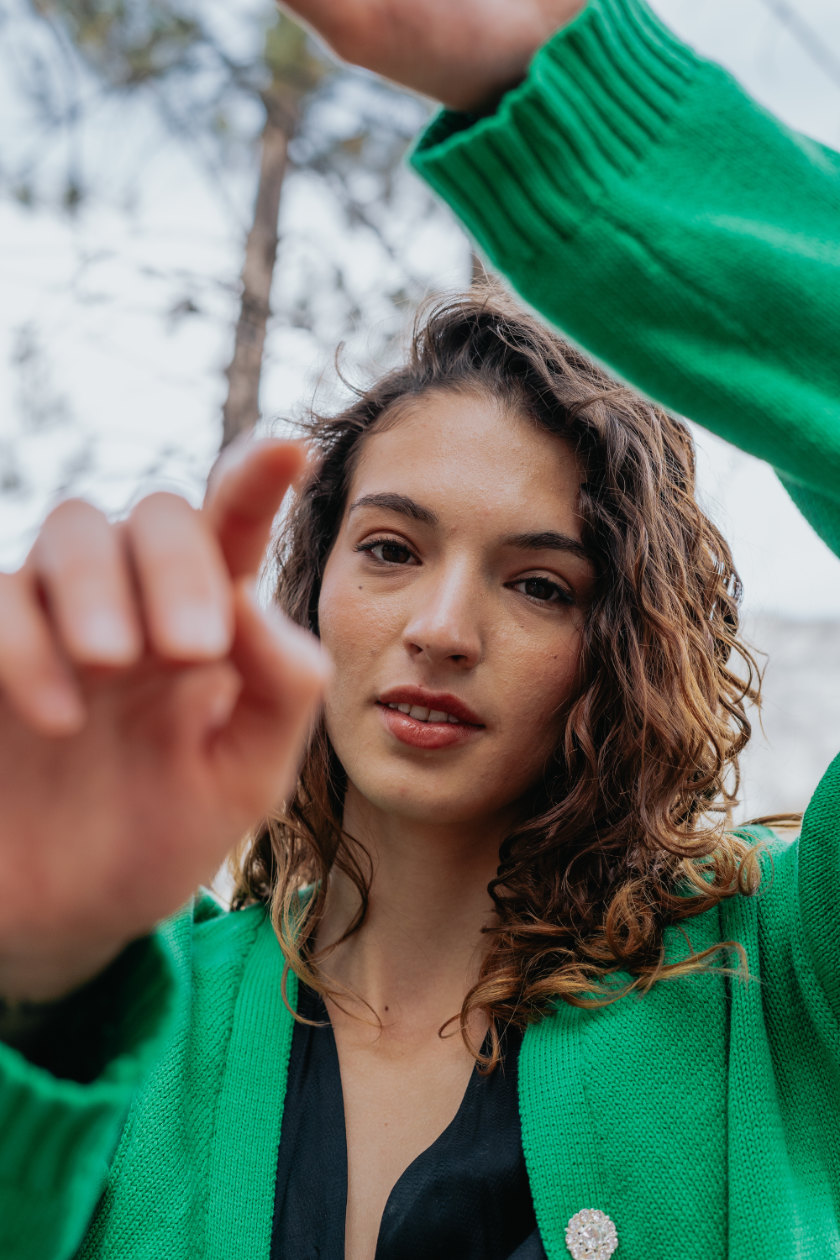
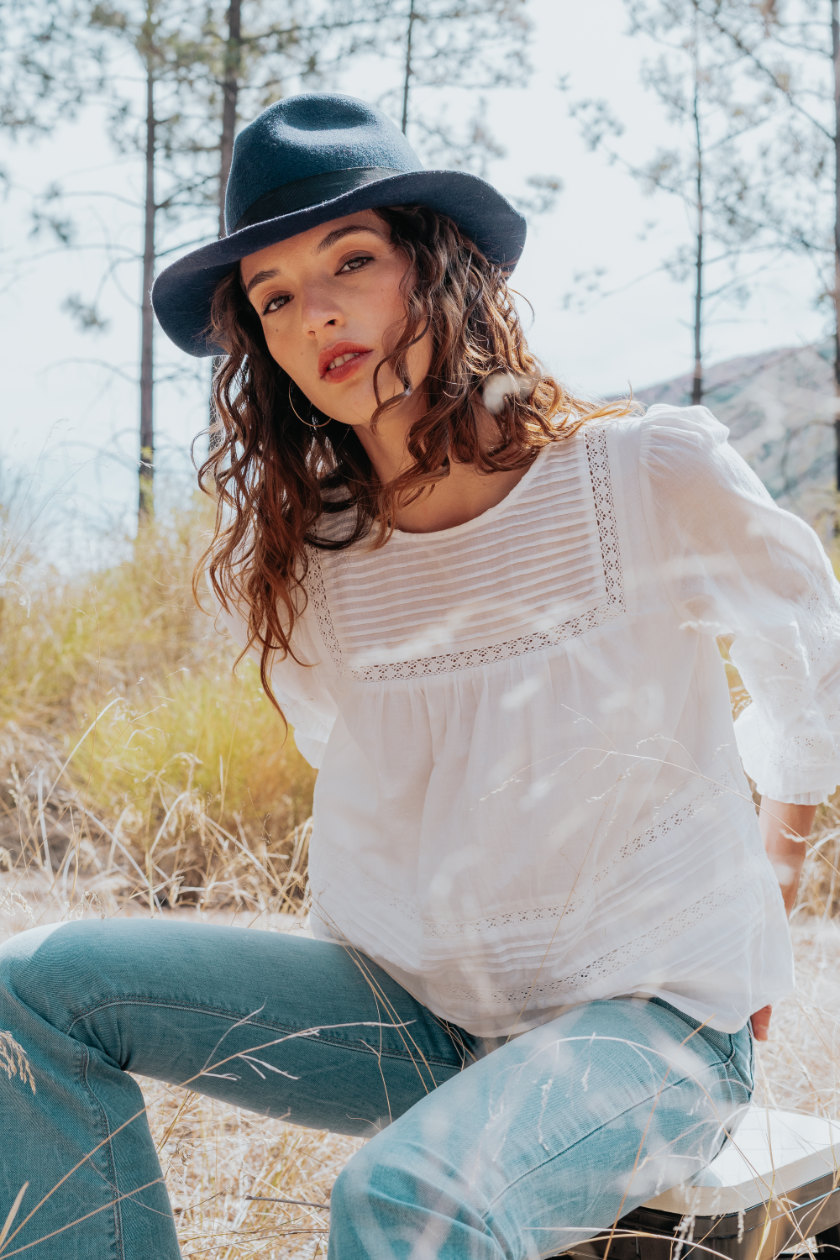
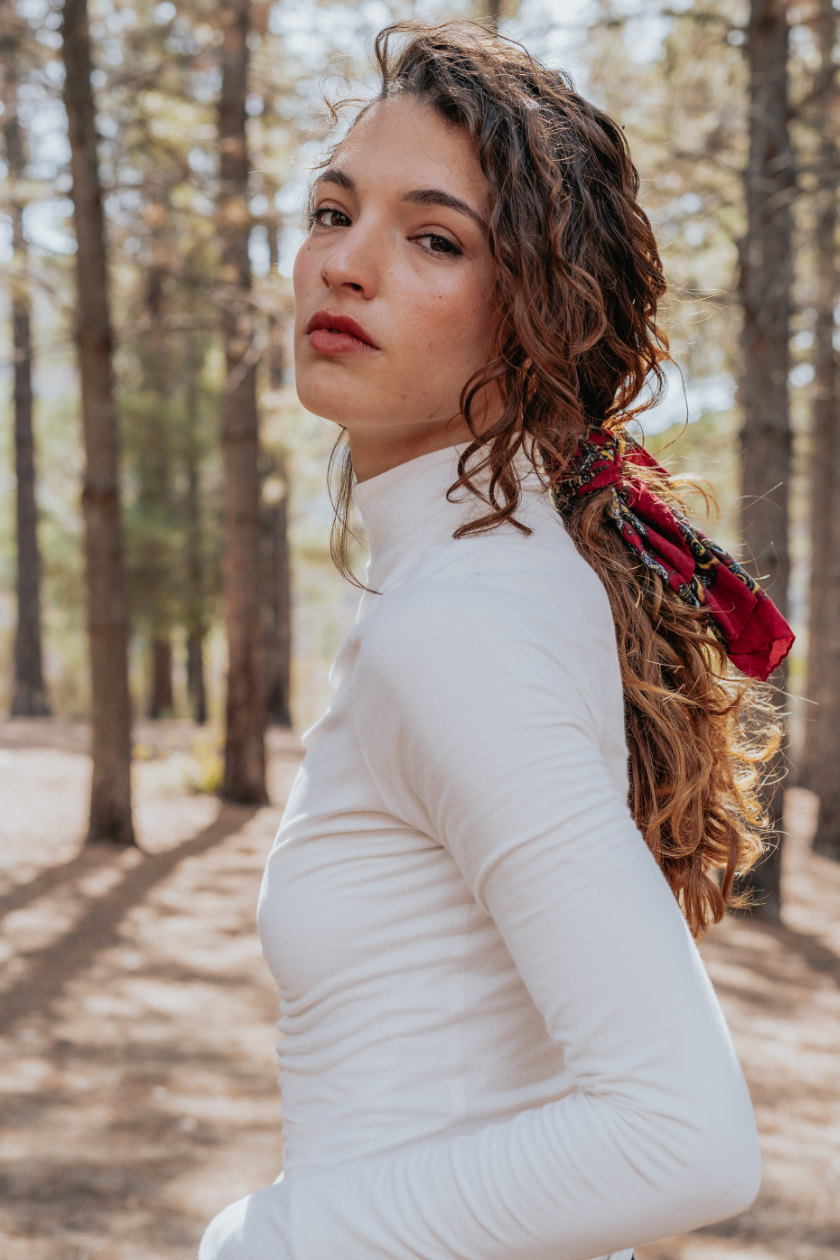
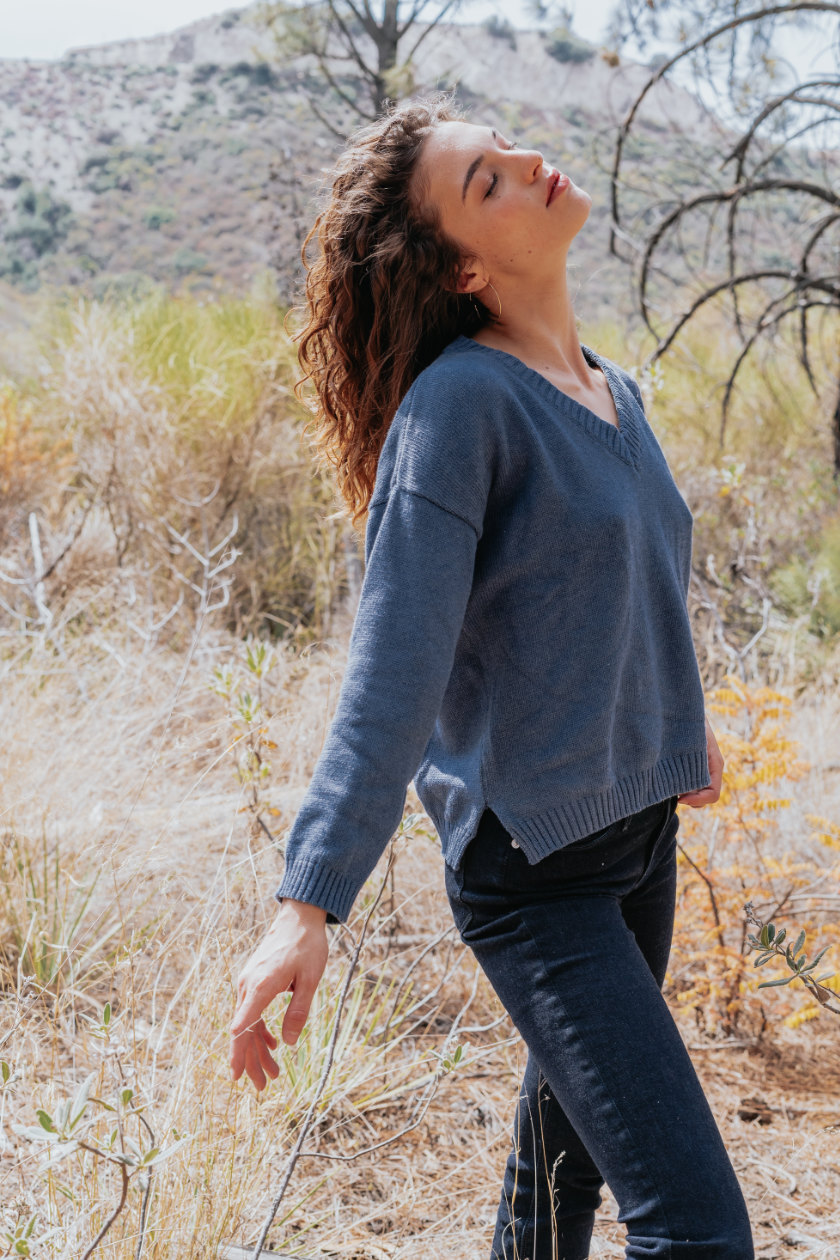
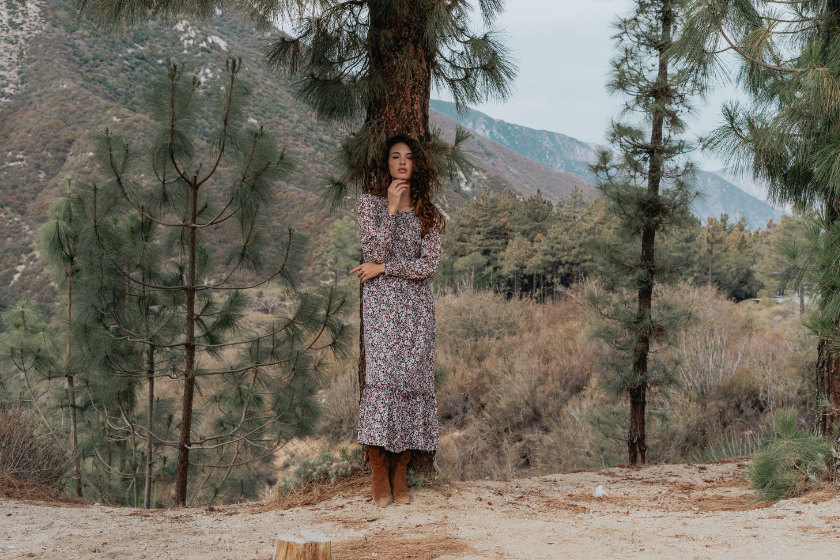
Related articles hand-picked by our editors
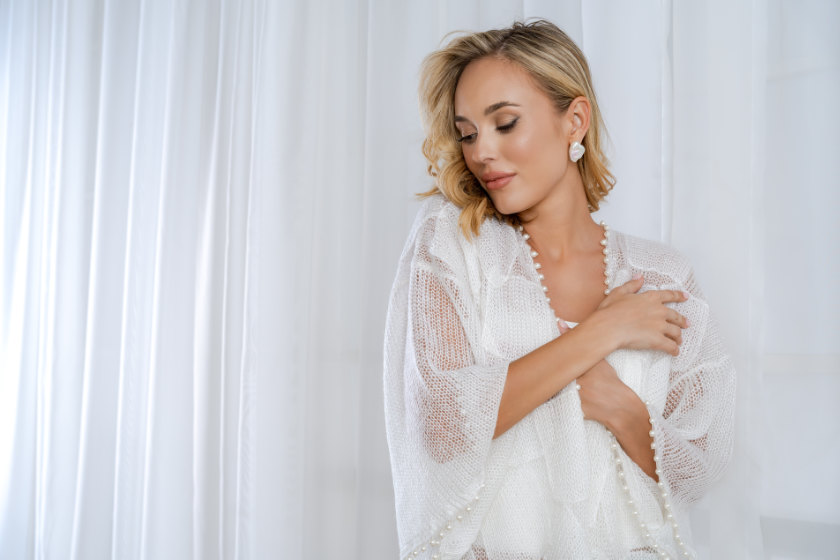
Born in Riyadh
Né à Riyad
Kayane Mahrejian created her sustainable label, Kaiane Designs, when searching for a wedding dress, and now capably multitasks between designing and working as one of the engineers at NEOM. Jack Yan speaks with her
Kayane Mahrejian a créé son label durable, Kaiane Designs, lors de la recherche d’une robe de mariée, et est désormais capable d’effectuer plusieurs tâches entre la conception et le travail en tant qu’ingénieur chez NEOM. Jack Yan parle avec elle
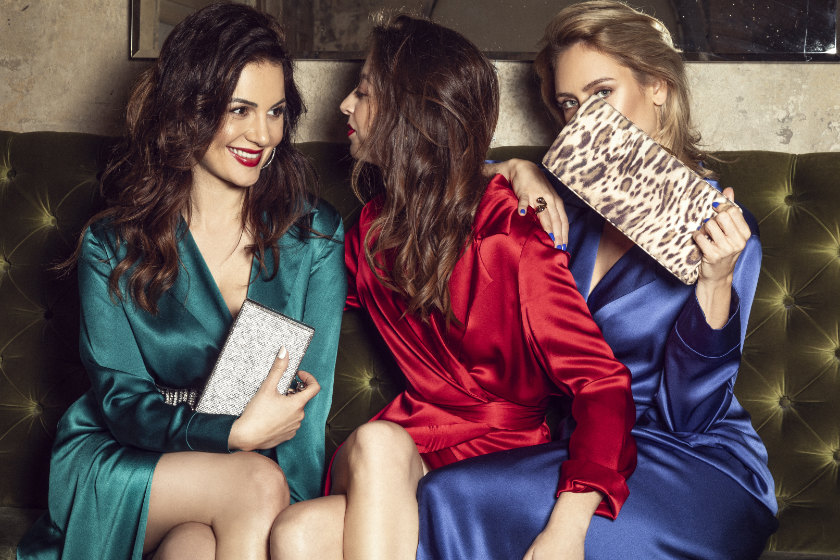
With beauty and meaning
Avec beauté et sens
美しさと意味
Seeing that fashion often fell short on innovation and ecological promotion, Laura Sänger created La Katz, a silk label that adopts a cradle-to-cradle philosophy, and eliminates all pollutants and plastics. The result: silk that feels purer than what you might have come to know, raising the standard. Jack Yan interviews her
Voyant que l’industrie de la mode a souvent manqué d’innovation et de promotion écologique, Laura Sänger a créé La Katz, un label de soie qui adopte une philosophie « cradle-to-cradle » et élimine tous les polluants et plastiques. Le résultat : une soie au toucher plus pur que ce que l’on pouvait connaître auparavant, ce qui relève la norme. Jack Yan l’interviewe
ファッションはしばしば革新性(イノベーション)やエコロジーへの取り組みが充分ではないと気付いていたローラ・ゼンガーは、『ゆりかごからゆりかごまで』の哲学を採用し、すべての汚染物質とプラスチックを排除するシルクラベル、ラ・カッツを立ち上げました。その結果、シルクはこれまでの常識を根本から変える、純度の高い製品になりました。 甄爵恩ヤンが彼女にインタビューします
Photographed by Luise Hannah Reichert and Kaja Wagner
First published in issue 43 of Lucire
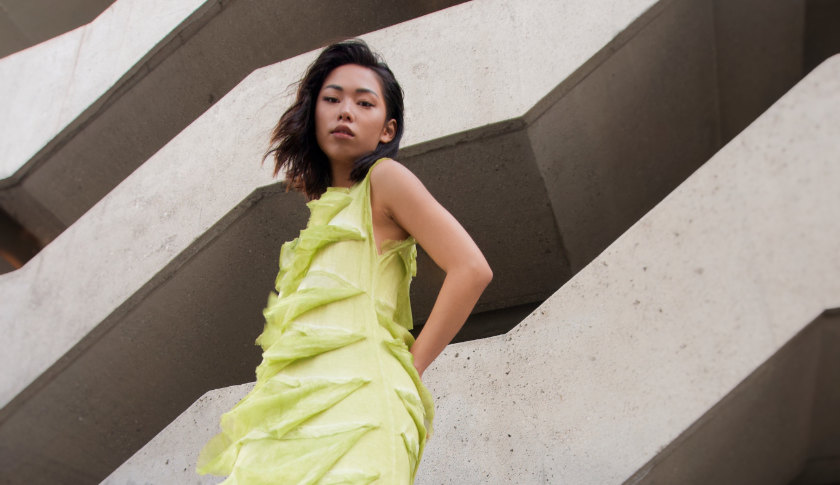
Fashion for the real world
Gigi Moda has found incredible success in the US in the six years since it started. Its founder and creative director Francine Wathelet shares the secrets to her success with Jack Yan
Photographed by Jonathan Ivan
Modelled by Quintana Quinor
Wardrobe styled by Alan Montes from the Wear the Future showroom
Make-up by Natalie Wertheim
First published in the June 2021 issue of Lucire KSA